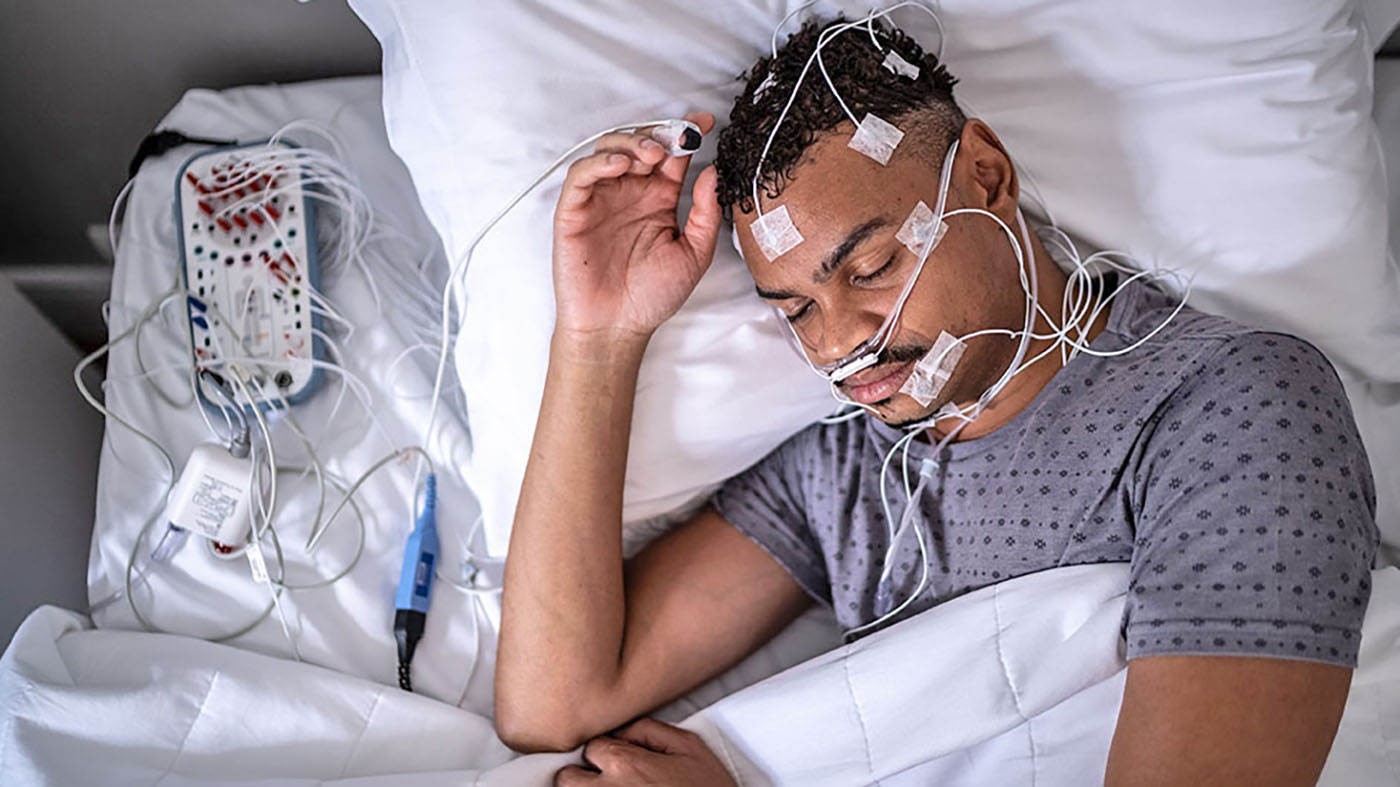Sleep issues impact more than how you function during the day. Poor sleep also affects your mental and physical health.
VA’s TeleSleep program works to help Veterans learn about healthy rest, treat sleep disorders and gain restful, quality sleep.
Dr. Kathleen Sarmiento has dedicated her career to improving sleep care for Veterans. She is the executive director of the VA National Sleep Medicine Program and directs the Office of Rural Health’s TeleSleep, which works to enhance access to sleep care for Veterans in rural areas.
“We’re heavily engaged with using telehealth to reach Veterans. The specialty lends itself very nicely to virtual pathways for clinical management, performing consults and follow-ups through video, and diagnosing patients with a multitude of sleep disorders,” Sarmiento said.
TeleSleep and accessibility to treatment
More than 1.7 million Veterans (33%) treated by VA had sleep apnea in 2023. Sleep apnea is the most prevalent sleep disorder among Veterans who also have insomnia, the second most common sleep disorder.
Telehealth has given Veterans access to care for sleep disorders. VA’s TeleSleep program has promoted home sleep apnea testing for Veterans. Tests are available from community clinics and VA medical centers or mailed to patients so they can be treated remotely.
Other ways VA treats sleep apnea include dental implements that lower the jaw and pull it forward for better breathing, devices that keep patients from sleeping on their backs, neuromuscular electrical stimulators that tone muscles in the upper airway, and surgical therapies.
Sleep clinicians also have an increasing role in medical weight management to treat sleep apnea as well as high blood pressure, high cholesterol and diabetes.
“If you sleep in a position other than on your back and you can manage to lose 10 to 15 pounds, health professionals can coach their patients into success by losing some weight and seeing the severity of apnea get better or go away,” she added.
For Veterans with insomnia, VA offers cognitive behavioral therapy for insomnia (CBT-i) as a treatment option. A self-paced course, Path to Better Sleep can help treat insomnia with digital CBT-i. Veterans may also use the CBT-i Coach mobile app to learn how to quiet their minds and set up productive sleep routines.
“We’ve seen significant innovation in cognitive behavioral therapy for chronic insomnia at VA. We’ve worked hard to provide online platforms for self-management to make these treatments more accessible,” she said.
Connecting Veterans with sleep telehealth
When TeleSleep initiative began in 2017, it was the first venture into a centrally supported system of sleep telehealth networks focused on reaching rural Veterans. Since then, clinical resource hubs give access to Veterans who don’t live near a VA medical center or a sleep specialist. Veterans can receive video telehealth visits at home or through Community Based Outpatient Clinics.
“We’re set up to deliver care wherever the Veteran is and wherever the providers might be,” Sarmiento said.
Struggling with sleep issues? Talk to your VA care team about scheduling a TeleSleep consult or check out these virtual sleep resources that may help. To learn more about telehealth, visit the VA Telehealth Services page.
Topics in this story
More Stories
The Medical Foster Home program offers Veterans an alternative to nursing homes.
Watch the Under Secretary for Health and a panel of experts discuss VA Health Connect tele-emergency care.
The 2024 National Veteran Suicide Prevention Annual Report provides the foundation for VA’s suicide prevention programs and initiatives.








I was diagnosed with sleep apnea several years ago. I was given a PPAC machine and tried for a while but could not adjust or sleep. The VA in Cleveland, Ohio has refused to try to do anything further. My record would show this and I would sign a Notorized , Sworn affidavit to that effect. Wow , is not it just Grand as to all the (
( propaganda ) that the VA puts out to the Public….,
I AM RICHARD ANTHONY EVANOW. BY BEING AN ENGINE FOR TO MANY YEARS WITH NO EAR MUFFS OR EAR PLUGS UNTIL IT WAS TO LATE AND I LOT MY HEARING, ADDRESS IS NOW [removed by editor]. Editor’s Note: Please do not include your personal address in this forum.
I have been using a CPAP since year 2000. As a result I can’t sleep without the device and will spend the entire sleep test wide awake. I will soon need a replacement. Can I obtain a letter from my provider stating this or do you need something else?
How does a vet with diagnosed sleep apnea and insomnia obtain the dental device?
I have been struggling with sleep for many years. The only solution the VA has is for me to wear a cpap mask. That does not work for me. Tried one for six years and woke up tired everyday.